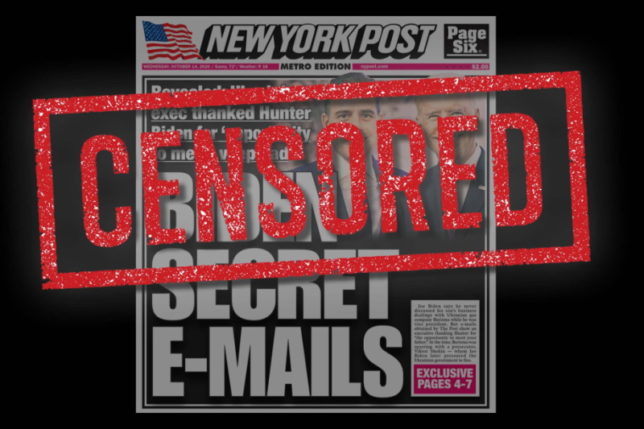Commentary
Political Hacks: Twitter’s Censoring and Sen. Whitehouse’s Lecturing


Twitter didn’t do itself any favors Wednesday when it censored a New York Post story that revealed Hunter Biden’s emails to a Ukrainian official attempting to set up a meeting with his father, Vice President Joe Biden.
Twitter’s Excuse
But Twitter’s excuse for their censorship—their claim that they disallow sharing of information retrieved from hacked materials—was almost worse in many ways, not least because it put the spotlight on Sen. Sheldon Whitehouse (D-RI). A day earlier the Whitehouse used hacked materials to make a case while lecturing Supreme Court nominee Amy Coney Barrett that the Bradley Foundation uses “dark money” to stack the judicial system in conservatives’ favor.
What did Whitehouse use to make that claim? A trove of documents obtained from a hack of the Bradley Foundation, allegedly by Russians.
Whitehouse’s “Questioning”
In his Judiciary Committee time on Tuesday, Whitehouse declined to ask Barrett a single question, choosing instead to harangue the judge and anyone watching about conservative “dark money,” in which he displayed internal documents from the conservative Lynde and Harry Bradley Foundation in Milwaukee, a group Whitehouse has vehemently criticized.
Whitehouse had the documents, including emails, only because they were hacked. While it may not constitute outright Whitehouse-Russian “collusion,” the senator must have known their source: widely understood to be Russian intelligence.
The New York Post, censored for suspected use of “hacked materials,” is denying Twitter’s accusation. Whitehouse will make no such denial because he clearly used hacked materials to source his absurd lecture on “dark money.”
Does Whitehouse or the Senate Judiciary Committee have a hacked materials policy? Will Twitter lock Whitehouse’s account? Will Facebook take steps to limit distribution of this part of Whitehouse’s “questioning”? Or are Twitter and other Big Tech companies the only arbiters of what constitutes “hacked” materials and how they can appropriately be used?



